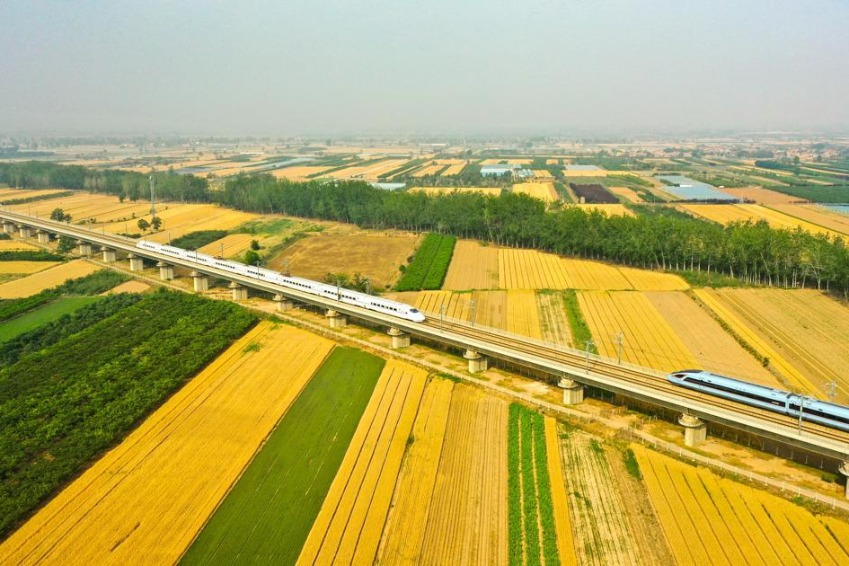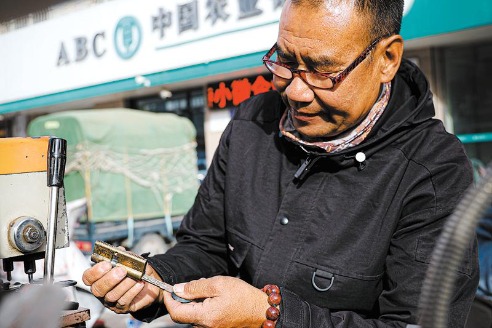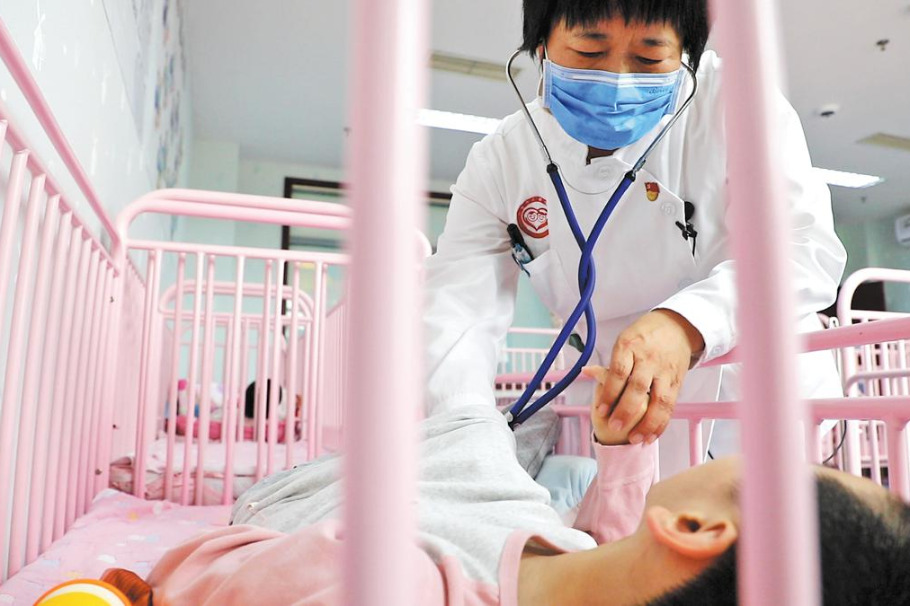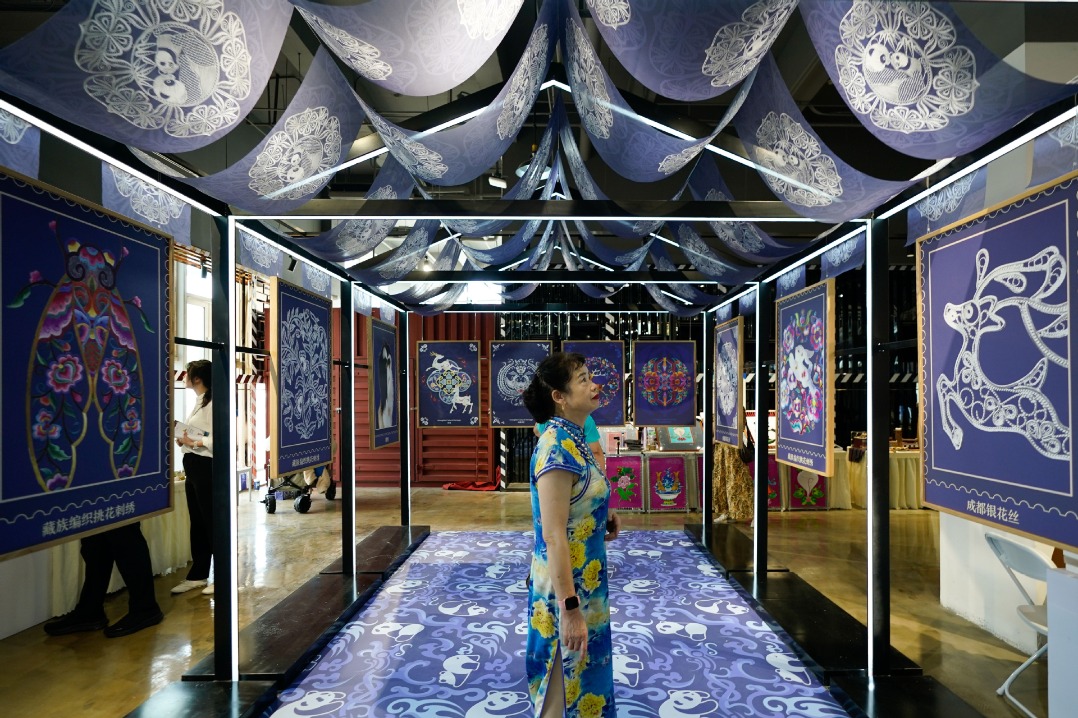Nation remains committed to reform, opening-up

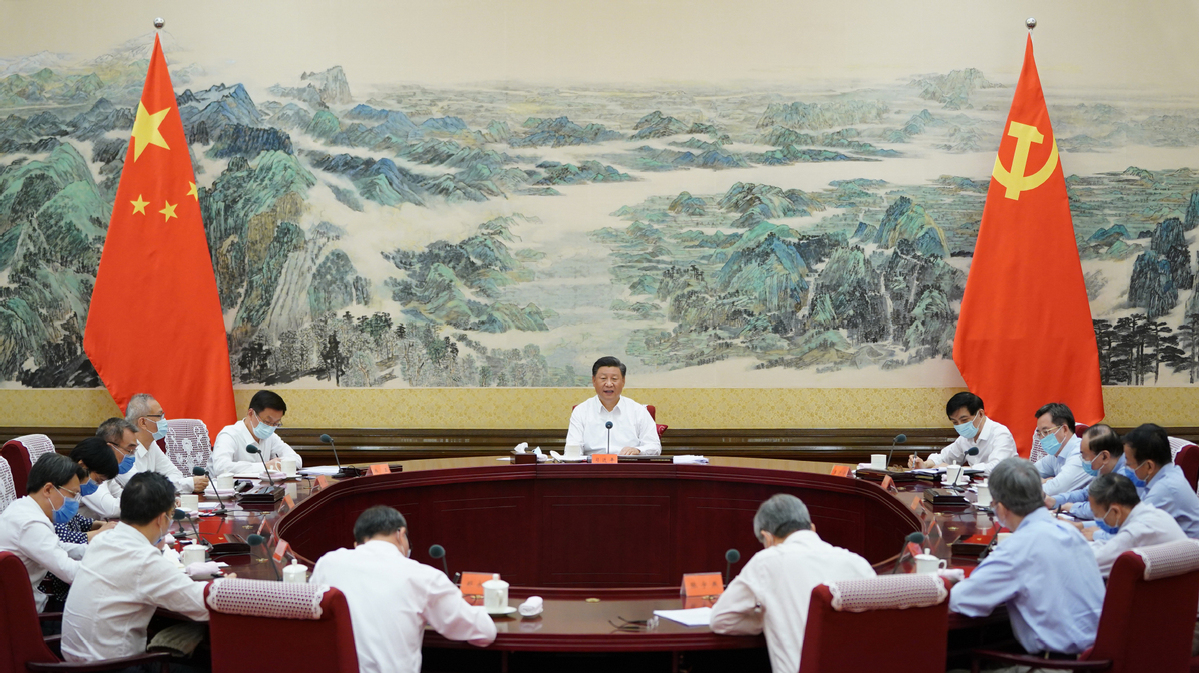
Forty years ago, China created four special economic zones in the southeastern coastal cities of Shenzhen, Zhuhai and Shantou in Guangdong province and Xiamen in Fujian province as part of the country's opening-up drive to encourage foreign investment and boost economic growth.
Ever since then, by adhering to its fundamental State policy of opening-up, China has aligned itself with the economic globalization process, and emerged to be the world's second-largest economy.
As the COVID-19 pandemic has plunged the world economy into recession, China remains committed to expanding opening-up to bolster its high-quality growth and to promoting globalization and inclusive development.
Speaking at a symposium on economic and social work on Monday, President Xi Jinping stressed the importance of higher-level opening-up in international cooperation and competition, and reiterated that opening-up remains China's fundamental policy.
He underlined the need to actively develop cooperation with countries, regions and enterprises that are willing to partner with China, including individual states, local partners and companies from the United States, in order to form an all-around, multifaceted opening-up structure.
While adhering to opening-up, Xi said the country should also coordinate security with development, make efforts to enhance competitiveness and improve its risk oversight, prevention and control capabilities.
Observers said that, against the backdrop that the US keeps raising its rhetoric against Beijing and escalating confrontation with the "new Cold War", China's consistent policy of opening-up holds the key to its post-pandemic development and will also inject greater confidence and momentum into the world economy.
Zhou Fangyin, president of the School of International Relations at Guangdong University of Foreign Studies, said that in the current situation, China's wider opening to the world will help frustrate US attempts to contain it on the international stage, although the policy cannot result in changes to Washington's anti-China strategy.
Through bilateral and multilateral cooperation with more countries, China will use its concrete steps in reform and opening-up to reduce the impact of anti-globalization caused by unilateralism and protectionism, hence contributing to its growth and bringing hope for world economic recovery from the fallout of COVID-19, Zhou said.
A recent meeting of the Political Bureau of the Communist Party of China Central Committee set the tone for the country's economic policy based on the uncertainties and problems that are likely to exist in the medium and long term. It called for a "dual circulation "development pattern in which the domestic economic cycle plays a leading role while the international economic cycle remains its extension and supplement.
Strategic choice
The policy comes as China seeks to leverage its huge domestic market and the potential of domestic demand so that domestic and foreign markets can complement each other, as it copes with an external environment characterized by rising protectionism, a global economic downturn and a shrinking international market.
It is neither a contingency plan in response to industrial and supply chains being severely affected by the pandemic nor a forced measure to counter some countries' decoupling with China, said Huang Qifan, former mayor of Chongqing and vice-chairman of the China Center for International Economic Exchanges.
It is a strategic choice China has adopted to step up the coordination of domestic and international markets to make them complement each other through more profound reforms and higher-level opening-up, Huang said in a recent online symposium on China's economy in Beijing.
Given rising protectionism and unilateralism, as well as the impact of COVID-19 on the global economy, Huang said that the more difficult the situation China faces, the more firmly it is committed to expanding opening-up in order to create new prospects from the changing situation.
"We need to boost the international economic cycle with higher-level opening-up," he added.
Since May, a number of new opening-up measures have been implemented in China, such as the liberalization of foreign investment in financial services. On June 1, China released the Overall Plan for the Hainan Free Trade Port, including zero tariffs on specific goods, lower income tax rates and a simplified tax system. Once operational, the port will become another door opening for China to interact with the world.
The third China International Import Expo, expected to be held in Shanghai in November, is considered a sign of China's firm commitment to win-win development through opening-up. It has drawn more registrations from renowned companies compared with last year, and the average exhibition area of Fortune 500 and leading companies will increase by 14 percent, fully demonstrating global businesses' confidence in China's economic growth and prospects.
Xi pledged at last year's expo that China will open wider to the world. In a reply letter to representatives of Global CEO Council members on July 15, Xi reassured the global CEOs that China will continue to deepen reform and expand opening-up, and provide a better business environment for investment and the development of Chinese and foreign enterprises.
Wang Huiyao, president of the Center for China and Globalization, said China's opening-up will not only benefit itself, but also brighten prospects for the world economy amid the current crisis.
"China demonstrated its ability to accelerate global economic recovery during the 2008 financial crisis, and now, amid the COVID-19 crisis, China is capable of helping the world move out of the coronavirus shadow via continued opening-up and multilateral cooperation," Wang said.
Sound business climate
While stepping up efforts to open its market, optimize opening-up and intensify bilateral and multilateral cooperation, China has also done a lot to improve the business environment.
Since China's first negative list for foreign investment access was released in 2017, it has been progressively shortened to 33 items from 93.
The World Bank's Doing Business Report 2020 ranks China 31st, up from the 78th place two years ago. For two consecutive years China has been on the list of 10 economies where business climates improved the most.
According to a recent survey conducted by the Ministry of Commerce, 99.1 percent of foreign-funded enterprises indicated that they would continue to invest and operate in China. The US-China Business Council's recent survey of over 150 businesses also shows that China's steps to expand opening-up and optimize its business environment have provided greater convenience to foreign companies in China, and US companies remain optimistic about the Chinese market.
However, analysts said the US administration's "America first "policy and mounting China-US tensions pose risks for countries' efforts to work together to get out of the world economic recession.
Zhou said "decoupling" with China, as proposed by some US politicians, cannot reduce the impact of globalization on countries' economic structures or solve problems related to the distribution of interests, but will actually make these problems get even worse.
Michele Geraci, former undersecretary of state at the Italian Ministry of Economic Development, said that in the current situation, partial decoupling or a slowdown in globalization may be a realistic outcome, but this will not bring benefits in the long term.
"Given the current economic disaster of many developed countries, a less efficient global economic environment may be a small price to pay in exchange for guaranteeing domestic social stability," Geraci said.
Stephen Roach, a faculty member at Yale University and former chairman of Morgan Stanley Asia, said it is tempting to read too much into the sharp escalation of the US-China conflict. "In my opinion, the recent escalation is more about crass US politics than about deep existential threats to globalization," Roach said.
He said the logical conclusion that the US administration is implying through this attack-escalation strategy is that the alleged "China threat" has become more serious in recent weeks.
"However, this is a supposition laced with conspiracy theories without any validation from fact-based evidence," Roach said, adding that this is the justification for the US administration's ever-escalating anti-China campaign.
- Shanghai's shikumen complex to return to original location using small robots
- Chinese VP to attend UN Ocean Conference in France, visit Spain
- Rescue work underway after 5.0-magnitude quake hits SW China's Yunnan
- Trash or trend? Chinese enterprises recycle plastic waste into chic souvenirs
- Bullet trains streak through golden wheat fields in Shanxi
- Various events held in China to mark World Environment Day

















